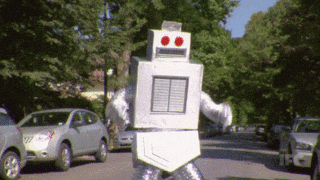- The Big Shift: AI @ Work
- Posts
- The Big Shift: AI @ Work - February 27, 2025
The Big Shift: AI @ Work - February 27, 2025
OpenAI Expands Deep Research, AI Agent Hype, Workers Brace for Change

Your go-to rundown on AI’s impact on the future of work—delivered almost daily. Each edition highlights three must-read stories on everything from job disruption and upskilling to cultural shifts and emerging AI tools—all in a crisp, Axios-style format.
In today’s edition…
OpenAI expands Deep Research, intensifying competition with DeepSeek and Anthropic over AI-driven analysis. Enterprise AI agents face major hurdles, as poor integration and undefined processes create more complexity than efficiency. Meanwhile, a new Pew Research report finds that most U.S. workers are more worried than optimistic about AI’s impact on jobs, with low-income employees fearing displacement the most.
ONE // OpenAI Expands Deep Research, Escalating AI Agent Wars
OpenAI is expanding its Deep Research capability to ChatGPT Plus, Team, Education, and Enterprise users, bringing advanced AI-powered analysis to a wider audience. This move intensifies competition with DeepSeek and Anthropic, both of which offer their own AI research models.
Key updates:
Deep Research is now available → Plus users receive 10 queries per month, while Pro users get 120.
Unlike chatbots, it generates full reports → The AI autonomously analyzes hundreds of sources to synthesize research-grade insights.
Performance boost → OpenAI’s new o3 model significantly improves research accuracy, outperforming competing AI tools.
The AI research arms race:
OpenAI favors a premium model → Advanced capabilities remain behind subscription paywalls.
DeepSeek takes an open-source approach → Their R1 model challenges OpenAI’s dominance by making AI research free to use.
Anthropic’s Claude 3.7 Sonnet adds transparency → Its visible reasoning process offers an alternative to black-box AI research.
What this means for businesses:
AI-powered research will reshape knowledge work, reducing time spent on analysis.
Companies must decide between proprietary AI tools for competitive advantage or open-source alternatives for cost efficiency.
The true value now lies in framing the right questions—organizations that best integrate AI-generated insights will gain the biggest edge.
Why this matters: AI-driven research is becoming an essential business tool. Organizations that embrace deep AI insights early will have a significant advantage in decision-making and strategy.
Source: VentureBeat
TWO // AI Agents Are Not Ready for Real-World Workflows
The push for AI agents as a revolutionary workplace solution overlooks the messy reality of business operations. AI cannot magically streamline workflows without deep integration into existing processes, rules, and data structures. Theo Priestley argues that enterprise AI agent adoption is being oversold, and the challenges of implementation are being ignored.
The real barriers to AI agents:
Lack of defined business processes → If companies do not fully understand their own operations, how can AI be expected to?
Agent sprawl and orchestration problems → AI agents do not function as a single, all-knowing entity. Different AI systems must coordinate, leading to complexity rather than simplification.
Integration struggles → Legacy systems, batch processing, and unstructured data make it difficult for AI agents to operate effectively.
Why AI agents will not deliver immediate transformation:
Companies rushing to adopt AI agents will face chaos → AI without structure is a liability, not an advantage.
Mergers and acquisitions will become a nightmare → When two companies with competing AI agent platforms merge, which system takes priority?
AI lacks the intuition and adaptability of human workers → Agents process information but cannot act on hunches, make subjective insights, or challenge assumptions.
What businesses must consider before implementing AI agents:
Clarify business processes → AI cannot succeed if workflows are not clearly defined and structured.
Plan for AI orchestration → Companies must prepare for multiple AI platforms working together, not a single solution handling everything.
Preserve human decision-making → AI lacks the ability to challenge norms, take leaps of faith, or drive innovation through unexpected insights.
Why this matters: AI agents will not revolutionize businesses overnight. Without clear rules, structured processes, and human oversight, they risk complicating operations rather than improving them. Organizations that blindly rush into AI automation will face significant setbacks.
Source: Theo Priestley [@Theo, Medium]
THREE // Most U.S. Workers Wary of AI’s Impact on Jobs
A new Pew Research Center report finds that more American workers are worried than optimistic about AI’s role in the workplace. While AI adoption is rising, most employees don’t see it creating more job opportunities—and many fear displacement.
Key findings:
52% of workers believe AI will have a negative long-term impact on jobs.
Only 6% think AI will increase job opportunities.
63% of employees say they rarely or never use AI at work.
37% of lower-income workers fear job losses, compared to 26% of higher earners.
16% actively use AI for research, writing, or automation—mostly younger, college-educated professionals.
Why it matters:
AI adoption remains uneven, with high-skilled workers benefiting while lower-income employees feel the greatest risk.
Few workers are being trained on AI tools, increasing the risk of job displacement.
Policymakers and businesses must focus on AI literacy and upskilling efforts to prevent economic inequalities from widening.
What’s next: As AI becomes more embedded in business operations, companies must balance efficiency gains with workforce adaptation to avoid deepening worker anxieties.
Source: Pew Research
Now with an AI-powered audio recap!
Prefer to listen instead? Each edition now comes with a podcast-style breakdown, generated using Google’s Notebook LM.
Get an audio breakdown of today’s stories here.
This edition of The Big Shift: AI @ Work may have been edited with the assistance of ChatGPT, Claude, Gemini, Grok, Perplexity, or none of the above.